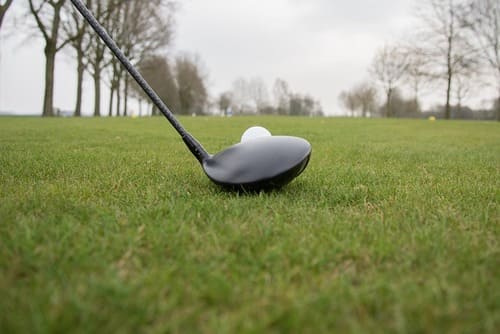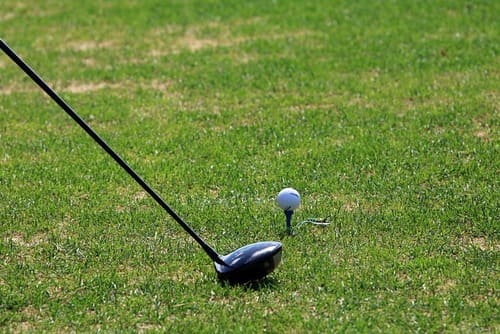“Fore-give and forget!” That might not be a commonly heard phrase on the golf course, but it’s one we’re about to explore in depth. When it comes to golf, there’s more to forgiveness than simply forgiving your buddy for that sand trap bet he swindled you into. It’s about understanding the unspoken language of the game, where missed shots and missteps are part and parcel of the experience.
In this blog post, we’re going to take a swing at the concept of forgiveness in golf – and no, we’re not talking about letting that slice off the tee slide. So, whether you’re a seasoned golfer with a repertoire of mulligans or a newbie trying to decipher the meaning of a “gimme,” join us as we navigate the fairways of this intriguing topic and discover “What Does Forgiveness Mean?” Grab your putter, and let’s take a stroll down the golfing path of redemption!
Understanding the Concept of Forgiveness in Golf
The concept of forgiveness in golf refers to the ability of a golf club or ball to compensate for imperfect shots. In other words, forgiveness is the extent to which a club or ball can minimize the negative effects of off-center hits or misaligned shots. This concept is particularly important in golf because the margin for error is quite small. Even the slightest miscalculation or mishit can significantly affect the trajectory and distance of the ball. Therefore, golfers seek forgiveness in their equipment to maintain consistency and accuracy throughout their game.
When a golf club or ball is forgiving, it means it has been designed to provide some level of assistance to the golfer when they make a less-than-perfect swing. Forgiving clubs typically have a larger clubhead or a wider sweet spot, which allows for a greater margin of error.
Similarly, forgiving balls are designed to have a softer feel and a lower spin rate, minimizing the impact of off-center shots and producing a more consistent trajectory. In essence, forgiveness in golf gives players a sense of confidence and peace of mind, knowing that even if their swing isn’t perfect, the equipment will compensate to some extent.
The Importance of Forgiveness in Golf
In the game of golf, forgiveness plays a pivotal role in achieving success on the course. Whether you are a professional golfer or a recreational player, understanding the importance of forgiveness can significantly impact your overall performance.
One key aspect of forgiveness in golf is the ability to let go of mistakes and move forward. It is natural for golfers to make errors during a round, but dwelling on these mistakes can lead to further frustration and negatively affect subsequent shots. By embracing forgiveness, players can maintain a clear and focused mindset, allowing them to make better decisions and execute their shots more effectively. In other words, forgiveness in golf entails accepting imperfections and bouncing back from setbacks, rather than allowing them to derail your game.
Without the understanding and application of forgiveness in golf, players may find themselves stuck in a cycle of self-criticism and disappointment. By recognizing the significance of forgiveness, golfers can foster a more positive mental attitude, which can ultimately enhance their overall enjoyment and success on the course. So, whether it’s forgiving a wayward putt or a shanked drive, learning to let go and move on is vital for golfers of all levels.
How Forgiveness in Golf Affects Performance
Golf is a sport notorious for its unforgiving nature. One small mistake or miscalculation can lead to disastrous consequences in terms of performance. This is where the concept of forgiveness comes into play. In golf, forgiveness refers to the level of tolerance a club or ball has for off-center hits or mistakes.
When a golf club or ball is designed with forgiveness in mind, it means that it is more forgiving of errors and mis-hits. This forgiveness has a significant impact on the overall performance of a golfer. It allows players to have more leeway when it comes to their swings, giving them the confidence to take risks and experiment with different shots. This enhanced forgiveness in clubs means that even if a player doesn’t hit the ball perfectly on the sweet spot, they can still achieve a satisfactory result. It minimizes the negative consequences of mishits, reducing the chances of a ball going off course or losing significant distance.
Ultimately, this forgiveness results in more consistent and reliable shots, leading to improved overall performance on the course.

Exploring the Relationship Between Forgiveness and Golf Skills
Golf is a sport that requires a high level of skill and precision. Every swing, every putt, and every shot is crucial for achieving a good score. However, even the most experienced and talented golfers can make mistakes on the course. This is where the concept of forgiveness in golf comes into play.
Forgiveness refers to the ability of golf clubs to minimize the negative impact of off-center hits. When a golfer hits the ball slightly off the sweet spot, a forgiving club can help to correct the shot and still provide acceptable results. A forgiving club has a larger sweet spot, which allows for more consistent shots and reduces the chances of severe mishits. This aspect of forgiveness is particularly beneficial for players who may struggle with accuracy or have a tendency to miss the center of the clubface. By using forgiving clubs, golfers can improve their overall performance on the course and achieve better results in terms of distance and accuracy.
The Role of Forgiveness in Improving Golf Scores
When it comes to improving golf scores, forgiveness plays a crucial role. In golf, forgiveness refers to the ability of a club or ball to minimize the negative effects of off-center hits. A forgiving club or ball reduces the chances of slices, hooks, and shots that fall short of the target, ultimately leading to better scores.
One way forgiveness contributes to improving golf scores is by increasing consistency. When a golfer can make accurate shots more consistently, it reduces the number of errors and mishits. A forgiving club or ball offers a larger sweet spot, which means that even if the golfer slightly misses the center of the clubface, the shot can still be reasonably accurate. This consistency allows golfers to hit more fairways off the tee and land their approach shots closer to the flag, increasing their chances of making pars and birdies.
Additionally, forgiveness also helps golfers recover from poor shots more easily, as the ball will not deviate as much from its intended trajectory, reducing the likelihood of ending up in difficult positions on the course.
Key Factors That Influence Forgiveness in Golf
Effective golfing requires a deep understanding of the key factors that influence forgiveness. One such factor is the club’s moment of inertia (MOI), which measures the club’s resistance to twisting upon impact with the ball. A higher MOI provides greater forgiveness as it helps to minimize the detrimental effects of off-center hits. Clubs with a higher MOI can be especially beneficial for golfers who tend to miss the sweet spot frequently, helping them maintain more control and distance even when they don’t achieve a perfect strike.
Another essential factor affecting forgiveness in golf is the club’s perimeter weighting. Clubs with a greater distribution of weight around the clubhead’s perimeter offer enhanced forgiveness. This design feature helps to stabilize the clubhead, reducing the impact of mishits and providing more forgiveness on off-center strikes.
Golfers should consider clubs with perimeter weighting to optimize their forgiveness and improve their overall game performance. These factors, combined with proper swing technique and consistent practice, can contribute significantly to enhancing forgiveness and ultimately lead to improved scores on the course.
Techniques to Enhance Forgiveness in Golf
One technique to enhance forgiveness in golf is to focus on improving your swing mechanics. A well-executed swing can lead to a higher degree of forgiveness, as it helps to maintain a consistent ball flight and trajectory. To achieve this, it is essential to work on your posture, grip, and alignment, ensuring that they are in proper alignment and position. Additionally, practicing proper weight transfer and rotation through the swing can also contribute to increased forgiveness, allowing for better control and accuracy.
Another technique that can enhance forgiveness in golf is to choose forgiving golf clubs. Forgiveness in golf clubs refers to their ability to minimize the negative impacts of off-center hits. Golf clubs with a larger sweet spot and higher levels of perimeter weighting offer greater forgiveness, as they are designed to reduce the impact of mishits and maintain a more consistent ball flight.
When selecting clubs, it is crucial to consider factors such as the clubhead design, shaft flex, and the level of forgiveness that suits your skill level. By using forgiving clubs, you can increase your chances of achieving better outcomes, even when your swing is not perfect.

Common Misconceptions
Misconceptions about forgiveness in golf often stem from a lack of understanding of its true essence. One common misconception is that forgiveness only pertains to forgiving oneself for making mistakes on the course. While self-forgiveness is indeed important, the concept of forgiveness in golf goes beyond that. It also encompasses forgiving others, such as fellow players or even the course itself, for any perceived wrongs or challenges that may arise during a game.
Another misconception is that forgiveness is solely about forgiving poor shots or bad breaks. While forgiving oneself for mistakes is undoubtedly crucial, forgiveness in golf also involves being able to let go of negative emotions that may arise from external factors beyond one’s control. It is about accepting the reality of the game, embracing the unpredictable nature of golf, and being able to move on from any disappointments or setbacks without holding onto resentment or frustration.
Practical Tips for Practicing
When it comes to practicing forgiveness in golf, there are a few practical tips that can help golfers improve their mental game and overall performance on the course. One tip is to focus on the present moment and let go of any mistakes or negative thoughts that arise during the game. By staying in the present and not dwelling on past shots or outcomes, golfers can maintain a clear mindset and avoid letting anger or frustration affect their next shot.
Additionally, it can be helpful to develop a pre-shot routine that includes a specific mental process for letting go of any negative emotions or self-criticism. This routine can serve as a reminder to forgive oneself for any mistakes and approach each shot with a fresh and positive perspective.
Another practical tip for practicing is to cultivate self-compassion. Golf can be a challenging and demanding sport, and it’s easy to be hard on oneself when shots don’t go as planned. However, by treating oneself with kindness and understanding, golfers can show more forgiveness towards their own mistakes and setbacks. This involves accepting that mistakes are a natural part of the game and not beating oneself up over them. Developing self-compassion can also help golfers bounce back quicker from disappointments and stay motivated to continue improving their skills.
The Future of Forgiveness in Golf
One cannot understate the significance of forgiveness in the world of golf. As the game continues to evolve, the concept of forgiveness is expected to play an even greater role in shaping the future of golf. With advancements in technology and equipment, golfers now have access to clubs that are designed to be more forgiving. These clubs, equipped with larger sweet spots and improved weight distribution, are aimed at allowing players to achieve better results even on off-center hits.
Additionally, the growing emphasis on course setup and maintenance will likely focus on creating more forgiving playing conditions, ultimately enabling golfers to be more successful on a broader range of shots.
In the near future, it is anticipated that forgiveness will extend beyond the physical realm and venture into the mental and emotional aspects of golf. Sports psychologists are delving deeper into understanding the impact of forgiveness on a golfer’s mindset and mental performance. The ability to let go of mistakes, setbacks, and external distractions is becoming an essential skill for golfers looking to reach their full potential.
As research expands, golfers may benefit from new techniques and strategies that help cultivate forgiveness as a mental strength, enabling them to maintain focus, composure, and resilience on the course. As a result, forgiveness may emerge as a key factor in enhancing overall performance and fostering a more enjoyable golfing experience.

FAQs
What does forgiveness mean in the context of golf?
Forgiveness in golf refers to the ability of a golf club or equipment to reduce the negative effects of off-center hits and provide more consistent results.
Why is forgiveness important in golf?
Forgiveness in golf is important because it helps golfers maintain consistency in their shots, reduces the impact of mishits, and allows for better overall performance on the course.
How does forgiveness in golf affect performance?
Forgiveness in golf can greatly impact performance by minimizing the loss of distance and accuracy when a shot is not struck perfectly. It allows golfers to maintain better control and improve their scores.
How does forgiveness relate to golf skills?
Forgiveness in golf is closely related to golf skills as it can compensate for minor errors in swing technique or ball contact. It gives golfers a greater margin of error and can improve their overall skill level.
Can forgiveness in golf help improve scores?
Yes, forgiveness can help improve scores as it reduces the likelihood of errant shots and provides more consistent results. It allows golfers to recover from mistakes and minimize the impact on their overall score.
What factors influence forgiveness in golf?
Key factors that influence forgiveness in golf include club design, clubhead size, weight distribution, center of gravity, and the materials used in construction. These factors contribute to the club’s ability to enhance forgiveness.
Are there any techniques to enhance forgiveness in golf?
Yes, there are techniques that can enhance forgiveness in golf, such as choosing clubs with larger sweet spots, using perimeter-weighted irons, and selecting drivers with adjustable weighting systems. Additionally, proper swing mechanics and practicing consistently can also improve forgiveness.
What are some common misconceptions about forgiveness in golf?
One common misconception is that forgiveness in golf is solely dependent on the golfer’s skill level. In reality, equipment plays a significant role in forgiveness. Another misconception is that forgiveness only matters for high-handicap golfers, whereas it can benefit golfers of all skill levels.
Any practical tips for practicing forgiveness in golf?
To practice forgiveness in golf, focus on improving your swing consistency and accuracy, experiment with different clubs to find those that provide better forgiveness, and work on your mental game to stay calm and focused even after mishits or mistakes.
What does the future of forgiveness in golf look like?
The future of forgiveness in golf is likely to see advancements in club technology, such as improved materials, more sophisticated designs, and customization options. Manufacturers will continue to innovate to provide golfers with clubs that enhance forgiveness and improve overall performance.






